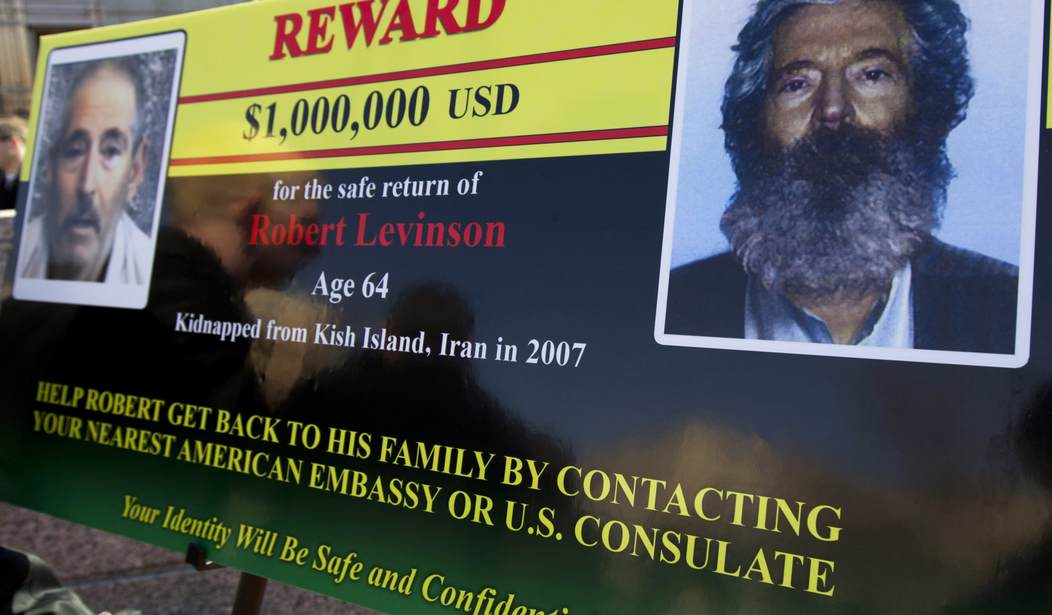Families of hostages held by Iran, including Americans, declared in an open letter this week to world leaders, media outlets and human-rights organizations that they “shall remain quiet no longer.”
“We come from many countries, with different backgrounds and different perspectives, but we have banded together now to come to you as one voice,” they wrote, noting that in September, on the sidelines of the United Nations General Assembly, “several of our families gathered together for the first time to share stories and struggles about getting our loved ones released.”
“We met again a few weeks ago, this time to share our testimonies with the UN Special Rapporteur on the human rights situation in Iran,” they added. “The similarities between our loved ones’ cases is striking. Each story is not just a case of arbitrary detention, but deliberate and tactical moves by the Iranian authorities to secure bargaining chips.”
The coalition includes the family of hostage Baquer Namazi, 82, who was arrested in Tehran in February 2016 after trying to secure the release of his son, Siamak Namazi, a U.S. citizen and businessman who was arrested in October 2015 while visiting a friend in Tehran.
In October 2016, the Namazis were sentenced to 10 years in prison “for spying and cooperating with the U.S. government against Iran.” Baquer has been hospitalized several times, and has life-threatening heart problems. Siamak has been subjected to torture.
It includes the family of retired FBI agent Bob Levinson, who disappeared nearly 11 years ago off the coast of Iran and is America’s longest-held hostage. The Levinson family filed a lawsuit against Iran in U.S. District Court for the District of Columbia “for injuries suffered by each of them as a result of Iran’s unlawful acts of hostage taking, torture and other torts.”
And the coalition includes the family of Nizar Zakka, a Lebanese-American and permanent U.S. resident who is secretary-general of the Dupont Circle-based IJMA3 group, which lobbies for the information and communications technology industry in the Middle East. Zakka earned degrees from the University of Texas after graduating from the Riverside Military Academy in Gainesville, Ga., in 1985. He used to work as a software engineer at contractor Kellogg, Brown & Root in the early ’90s.
Zakka visited Tehran at the invitation of the Iranian government to speak at a conference on women’s entrepreneurship and employment, and was seized as he tried to catch a return flight in September 2015. The State Department even helped fund his trip, according to his colleagues.
He was sentenced to 10 years on espionage charges a year after his arrest, and has undertaken lengthy hunger strikes in protest of his detention. His family warned months ago that Zakka is in “very bad health.”
The letter also includes the families of Ahmadreza Djalali, a Swedish-Iranian scientist who was invited by Iranian universities to develop training for researchers and was arrested by the Ministry of Intelligence of Iran in March 2016; Kamran Ghaderi, an Austrian/Iranian citizen and IT consultant who was arbitrarily detained at the airport when he arrived from Vienna to Tehran for a regular business trip in January 2016; and Saeed Malekpour, who was wrongly imprisoned in October 2008 when he traveled to Iran from Canada to say goodbye to his dying father.
“The evidence is conclusive, and we should call this what it is: hostage taking. Since Mr. Levinson disappeared, over 50 people with some connection to a western power have been taken hostage by the Iranian authorities. According to a recent report by the Thomson Reuters Foundation, as many as 20 are still held hostage in Iran,” they wrote.
“Over several agonizing years, our loved ones’ cases have each been treated individually, but while they are all unique and complicated cases, this is not an individual problem, it is a pattern; a pattern we call on world leaders to help end. Responsible stakeholders on all sides of this issue know what to do. Please, secure our loved ones’ freedom from Iranian prisons. Our outreach now is not about international politics. We are a determined group of individuals and families speaking to our governments with one voice, as human beings who have been affected by the horrific situation that the Iranian authorities have created. We are asking for action.”
The families said they believe that “the Iranian authorities have little incentive to end the cruel and horrific practice of hostage taking as a result of inadequate pressure from the international community.”
“World leaders need to make the political cost for committing human rights violations so high that releasing our loved ones becomes advantageous to the Iranian authorities. We urge all our governments, especially those who enjoy diplomatic relations with the country of Iran, to acknowledge this hostage taking crisis immediately and to take concrete steps that would help resolve these cases,” they wrote.
“Do what is in your power to help secure the release of our loved ones and their safe return home by ensuring that their cases are at the top of the agenda of any dialogue with the Iranian authorities. Please act urgently before any more time has passed or pain imparted. Please clearly and immediately join with us to tell the government of Iran that this behavior will no longer be accepted and must end now. We call on you to send our loved ones home to us.”
The letter, signed also on behalf of “the many more families who remain silent in fear for the safety of their loved ones,” was sent Sunday to officials in the United States, the United Kingdom, Canada, Austria, Lebanon, Sweden, Germany, Switzerland, Italy and Oman, as well as the United Nations and European Parliament.









Join the conversation as a VIP Member